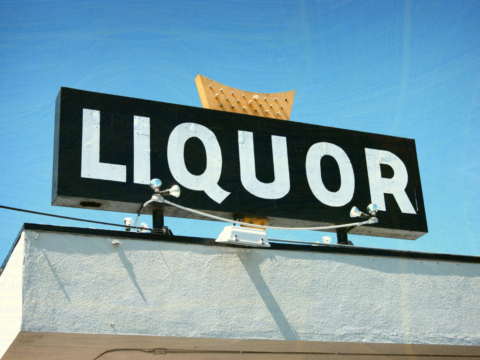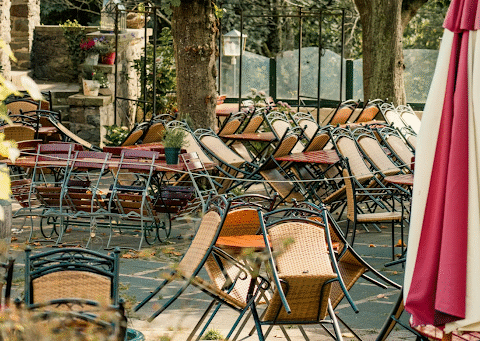Alcohol is big business, totalling almost $30 billion annually in Canada alone. But with big reward comes big responsibility; regulations around the sale of alcohol in Canada are strict, and can be complex and costly, so you need to ensure you are prepared. Here’s what you need to know regarding the financial aspects of liquor licensing:
Manufacturer’s License Fees: Breweries, Wineries, and Distilleries
If you’re venturing beyond serving drinks and plan to make your own—setting up a craft brewery, winery, or distillery, for example—you’ll encounter a separate set of licensing fees. These manufacturer’s licenses tend to have heftier price tags and their own renewal schedules, so it pays to be prepared.
Here’s an overview of what to expect:
- Brewery License: The fee to hold a brewery license typically runs about $3,150 for a two-year term, or $6,300 if you want to secure a four-year approval up front.
- Distillery License: For distilleries, the two-year license renews at around $2,520, while a four-year version comes in at $5,040.
- Winery License: Wineries generally see lower fees: $1,260 for two years, or $2,520 if you’d like four.
Be aware that other administrative changes—like transferring a license to a new owner, changing the name on the license, or updating the legal structure of your business—can also come with their own price tags. Transfers, for example, often run about $1,000, while a name change or legal entity update can cost between $80 and $100. Some changes, including updates to your business address or adding conditions to your license, may not require a fee.
Licensing agencies can alter these fees, so it’s a good idea to double check the specifics for your province and be ready for some variability. Careful planning at this stage can help avoid unpleasant surprises down the road.
Liquor License Costs
The regulation (and therefore cost) of liquor licenses differs across provinces and territories; it also depends on what type of license you need. This is where things can be either quite complicated, or simple, depending on your exact situation.
For example, in B.C. there are two main types of liquor license that cover bars and restaurants, known as either “Liquor Primary” or “Food Primary”. The cost to apply for these licenses is $2,200 and $950 respectively, with another payment of either $2,200 or $950 due to cover the license for the first year. Renewal fees then depend on the amount of alcohol sold per annum. This is one of the simpler set-ups.
Compare this to Newfoundland and Labrador, where there are fourteen different types of liquor license, each with their own rules and regulations, and each with a different application process and varying terms and costs. So, depending on your exact business model, you may be looking at an initial cost of $50 to $200, plus an annual cost of anything from $100 to $2,400.
Regardless of where your business is based, you should be prepared for:
- License application fees
- Initial license fees
- Renewal fees
- Transfer fees
- Fees for additional permits and endorsements
The variability in liquor licensing costs means it is crucial you do your research before considering a new license, and that you stay on top of the regulations to make sure you’ll have the funds needed for license renewal in hand. The absolute worst thing to do is have a business reliant on revenue from alcohol sales, and be unable to cover the cost of your license renewal when it comes due.
| Province | Liquor Licensing Regulatory Body |
| Alberta | Alberta Gaming & Liquor Commission (AGLC) |
| British Columbia | BC Liquor & Cannabis Regulation Branch (BCLCRB) |
| Manitoba | Liquor, Gaming and Cannabis Authority of Manitoba (LGCA) |
| New Brunswick | New Brunswick Justice and Public Safety |
| Newfoundland & Labrador | Newfoundland Labrador Liquor Corporation |
| NWT | NWT Liquor Licensing Board |
| Nova Scotia | Nova Scotia Liquor Corporation (NSLC) |
| Nunavut | Nunavut Liquor & Cannabis Board (NLCB) |
| Ontario | Alcohol and Gaming Commission of Ontario (AGCO) |
| PEI | PEI Liquor Control Commission (PEILCC) |
| Quebec | Quebec Alcohol, Racing and Gaming Commission |
| Saskatchewan | Saskatchewan Liquor and Gaming Authority (SLGA) |
| Yukon | Yukon Liquor Board (YLB) |
Special Occasion Permit Fees
If you’re planning to serve alcohol at a special event—whether it’s a glitzy industry tasting, a cozy private gathering, a blockbuster public festival, or even a tailgate—there’s a specific set of permit fees you’ll need to factor into your budget.
Here’s a quick rundown of what you can expect:
- Industry Promotional Events: If you’re hosting an industry event with alcohol sales, the permit fee is $150 per day. If there are no sales (think tastings or samplings without purchase), it drops to $50 per day.
- Private Events: For birthdays, anniversaries, or any closed-door private event where alcohol is sold, it’s $150 per day. No sales? The fee is $50 per day.
- Public Events: Open-to-the-public events (like festivals or fairs) where you’ll be selling alcohol also require a $150 permit per day or $50 if it’s not for sale.
- Tailgate Events: Whether you’re selling drinks at a tailgate or simply offering them, the permit runs $150 per day either way.
- Auctions: For charity or fundraising auctions where alcohol is part of the festivities, expect a permit fee of $75 per event.
Remember, each event type has its own requirements and it’s a pay-per-day approach—so if your bash stretches over a weekend, multiply accordingly.
These fees are generally one-time costs and do not cover multi-year terms, so you’ll want to budget for each event as it comes up.
Fees for Beer Retail Store Licenses
If your business model involves operating a retail store selling beer—think along the lines of Toronto’s bottle shops or corner stores in smaller towns—you’ll be relieved to know that, in some provinces, the fees for obtaining or even amending such a license may actually be zero. That’s right: there’s often no charge for applying, relocating, or closing a beer retail store license within these specific regulatory categories.
What does this mean for you? In certain cases, you won’t need to budget for any up-front or renewal fees when it comes to core licensing for beer retail operations. However, keep in mind that while some regulatory frameworks keep things simple and cost-free, you still need to ensure all your paperwork complies with local rules—because, as we’ve seen, the real expense can come from missing key requirements rather than the license cost itself.
Retail Store License Fees: Convenience vs. Grocery Stores
It’s not just bars and restaurants that need to keep an eye on licensing fees—retailers selling alcohol have their own set of numbers to consider.
If you’re aiming to open a convenience store and plan to sell alcohol, you’re looking at an annual license fee of $500. Straightforward enough. On the other hand, grocery stores face a much steeper tab: an annual fee of $3,250 is required to get licensed to sell alcohol.
A few more good-to-knows:
- Renewals come in at the same price as new applications, so budget accordingly.
- Transferring a license, changing operators, or even changing the name of your legal entity won’t set you back—it’s free of charge.
- Voluntarily surrendering your license is also free (though hopefully that’s not in your business plan).
Keep these costs in mind as you run the numbers for your retail venture. Proper budgeting for these fees will help ensure there aren’t any costly surprises down the road.
How Do Two-Year vs Four-Year Term Lengths Affect License Fees?
In many provinces, business owners seeking to obtain or renew a liquor license have the option of choosing between different term lengths—most commonly two-year or four-year terms. The term you choose can have a significant impact on both your up-front and overall costs.
Shorter Terms:
- Two-year licenses typically come with lower total costs at the outset, making them more accessible for new businesses or those wanting to test the waters before committing long-term.
- They allow owners to re-evaluate their operating model more frequently and can be beneficial if you anticipate changes in your business structure, location, or management over the next couple of years.
Longer Terms:
- Four-year licenses often offer a slight savings compared to paying two consecutive two-year fees, meaning you’ll usually pay less per year if you commit to the longer term. This can be a smart move for established operations certain to maintain the same license requirements.
- Committing to a four-year term can also reduce administrative hassles, as you won’t need to reapply or worry about renewal deadlines and fees every other year.
Comparing the Math: For example, renewing a typical liquor sales license for a two-year term may cost you around $1,000, while locking in a four-year term could come with a marginal discount—say $1,800 instead of $2,000 if paid in two instalments. That’s a neat bit of savings over time, especially for high-volume venues or mature operations like a Cactus Club Café or a long-standing Fairmont Hotel bar.
What’s Right for You?
- If you’re just getting started, a shorter term might help you stay nimble and flexible.
- If your business is predictable and steady—think staple spots like local chains or long-established microbreweries—a longer term can mean less paperwork and more savings in the long run.
No matter which you choose, be sure to budget for these costs well in advance, as the license term you select can influence not just your up-front spend, but also how often you’ll be dealing with applications, renewals, and potential changes down the road.
License to Deliver Alcohol: What Will It Cost?
If your business involves delivering alcohol, there are additional licensing fees to consider. The expenses will depend on the type of application and the term length you choose:
- New License Application:
- $500 for a two-year license
- $700 for a four-year license
- Renewal of License:
- $200 for a two-year renewal
- $400 for a four-year renewal
- Share Transfer or License Transfer:
- $500 per application
- Name Change (such as rebranding, corporate restructuring, etc.):
- $80, although this fee is typically waived if the name change is being requested as part of a renewal or transfer
- Other Modifications:
- Many structural or legal adjustments, such as changing your business entity or amending license conditions, often come with no additional fees.
It’s worth reviewing these requirements in advance, especially if your business expects to undergo changes like name updates, share transfers, or expansions. Careful planning can help avoid unnecessary costs or surprises as your operations evolve.
Financing Your Liquor License
As the cost of a liquor license can run into the thousands, there are many businesses – including a majority of independently-owned bars and restaurants – that struggle to afford the fees when they come due. But as losing your liquor license is not a viable option, what can you do in this situation? Fortunately there are many financing options to help business owners over this hurdle. Below we have outlined just the most relevant to this conundrum:
Merchant Cash Advance
A merchant cash advance (MCA) is a financing option that suits restaurants and bars particularly well, as the repayment mechanism mimics the amount of trade. Essentially, an MCA is a lump sum cash advance on anticipated future credit card sales, which is repaid as a percentage of these sales as they happen. So you are not stuck repaying a fixed sum at regular intervals, but instead see a small portion (e.g. 10%) of your incoming revenue deducted at the point-of-sale terminal.
This makes an MCA a convenient and easily accessible way of sourcing immediate capital to cover the cost of liquor licensing, which can then be paid back over time by the revenue generated by that license.
To learn more about MCAs and how they stack up against other financing methods, read an in-depth analysis here.
Business Loan
A more structured solution is a business loan; these come in many shapes and sizes, and can be gotten from traditional lenders (like a bank or credit union) or an alternative lender (like an online-only lender or a peer-to-peer lender). The benefit of a business loan is that it can grant access to potentially large sums of money, for use on any legitimate business purpose. Interest rates can be low, and repayment happens over a set term via equal monthly repayments.
A business loan can be useful if you need funds for both your liquor license and other business costs, but may be unachievable if you only need a small amount (e.g. just to cover the cost of a license renewal). This is because most business loan lenders focus on amounts starting at $5,000+. However, if you need a larger amount, a business loan may be the cheapest way to go.
Business Line of Credit
Lastly, a business line of credit can be an extremely useful tool for bars and restaurants with changing or unknown financial needs. A line of credit is a type of loan that allows you to borrow any amount of money, up to a pre-set limit. Only what you actually borrow is subject to interest charges, and once you have repaid outstanding balances, you can then re-use the line. So if you keep the line open over time, you can use it for licensing costs each year, as well as other ad hoc business needs. This flexibility is very convenient, but note that interest rates are usually higher than with a standard loan, and your credit limit will depend on your business.
Don’t Miss Out
Canadian households spend an average of $1,125 on alcohol each year – 28% of which is spent in bars and restaurants. But, whilst undoubtedly a sound financial investment, a liquor license is not always cheap or easy to obtain. Make sure you prepare your financing in advance to prevent your business from being caught out by licensing costs. And to find out more about your financing options, speak to one of our experts.




